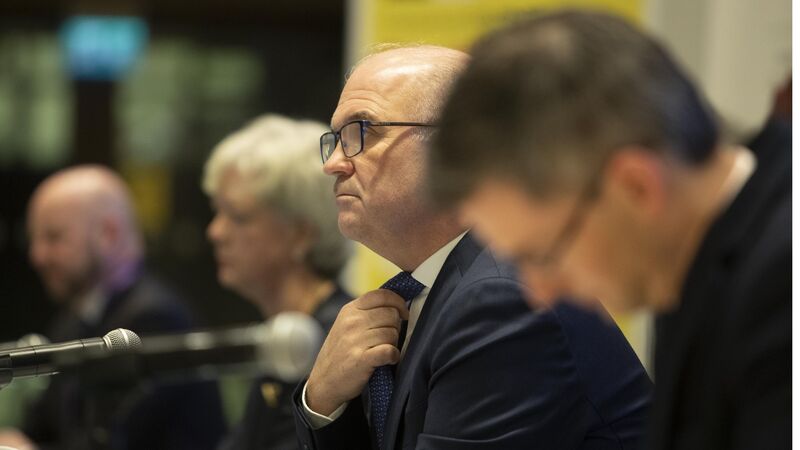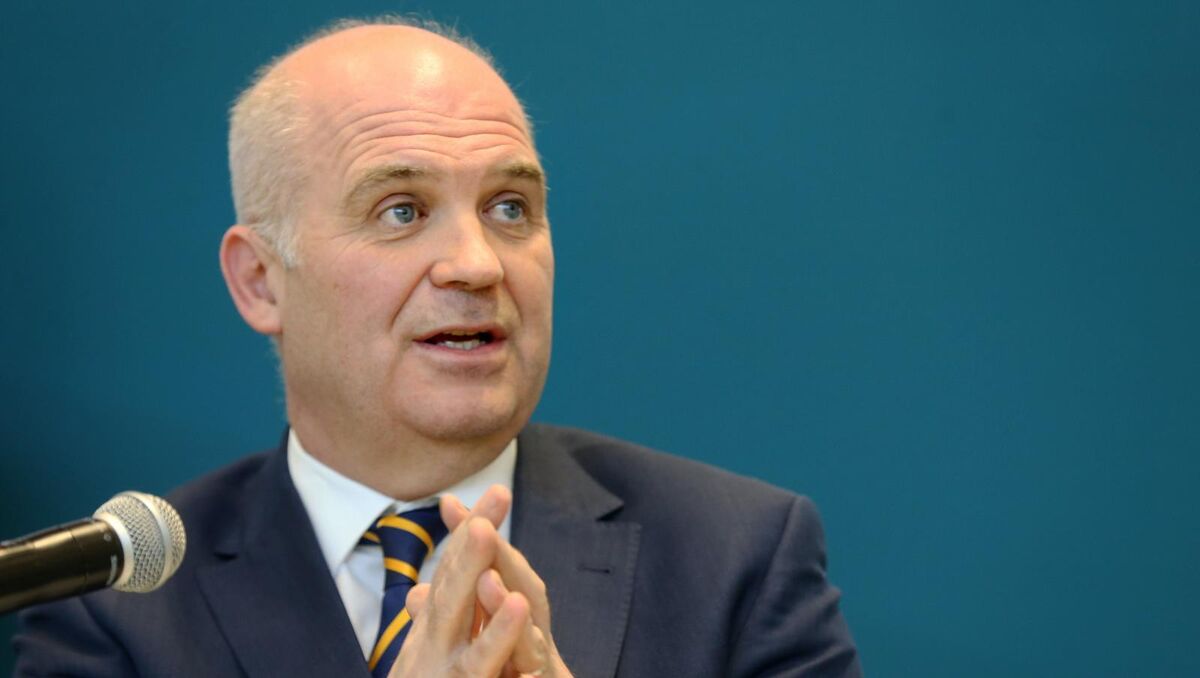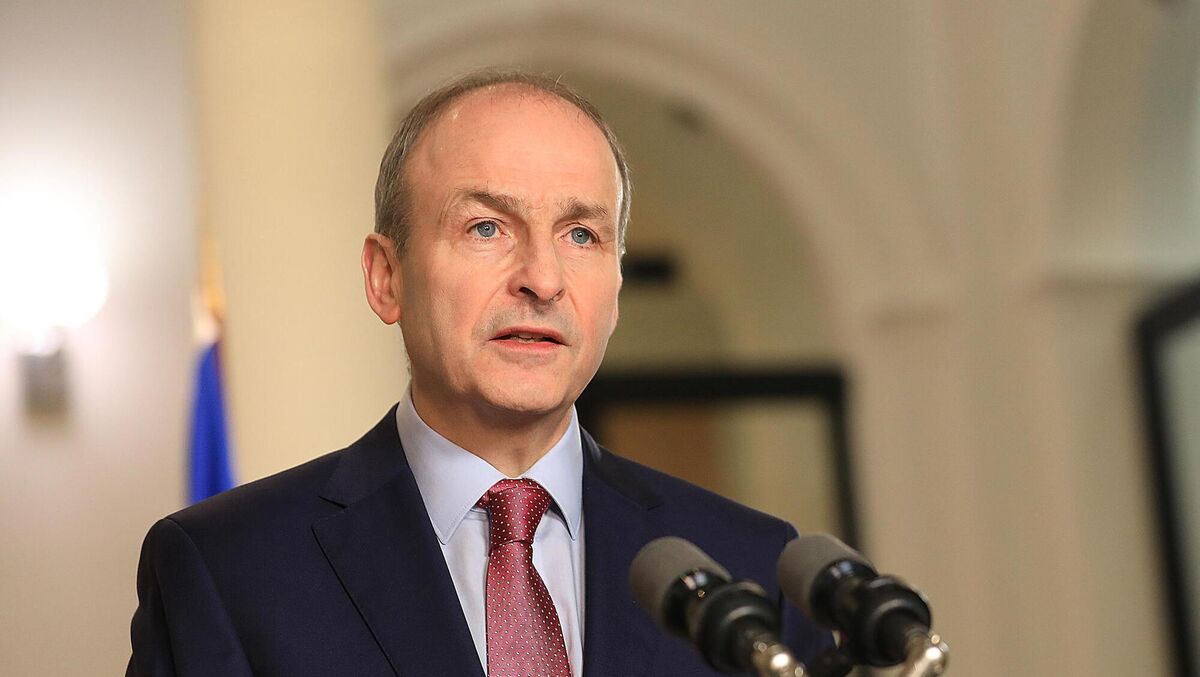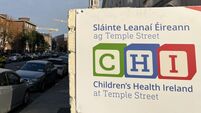484 Covid-19 cases confirmed as Nphet warns 'virus is spreading throughout the country'

The total number of Covid-related deaths in Ireland has now reached 2,143. Picture: Colin Keegan/Collins Dublin
The National Public Health Emergency Team (Nphet) have confirmed 484 new cases of the coronavirus in Ireland today.
Three further deaths were also reported by the health authorities this evening at a briefing.
In total, 77,678 cases of the coronavirus have now been identified in Ireland since the outbreak began.
The total number of deaths has now reached 2,143.
211 people are in hospital receiving treatment for the virus and 31 people are in intensive care. 30 people have been hospitalised in the last 24hrs while 14 cases were discharged including two people from intensive care.
Dublin reported the most cases today with 150 confirmed while Wexford reported 45 cases. Cork follows with 40 cases identified along with 32 cases in Donegal and 29 in Limerick.
The remaining 188 cases are found in 20 other counties.
Of cases today;
- 246 cases are men and 238 are women;
- 59% of cases are found in people under 45 years of age;
- The median age of confirmed cases is 37 years old;
The latest confirmed cases and new deaths in Ireland come as Minister for Health Stephen Donnelly told the Dáíl that his conversation today with Chief Medical Officer (CMO) Dr Holohan was "very sobering".
Dr Holohan informed Minister Donnelly the R-rate of Covid-19 transmission in Ireland was now between 1.1 and 1.3 which means the virus is spreading in the community.
Travel restrictions between counties in the country are due to be lifted tomorrow for Christmas however Mr Donnelly warned the coronavirus situation has become "precarious".

Speaking at tonight's public health briefing, Professor Philip Nolan, Chair of Nphet's Irish Epidemiological Modelling Advisory Group said the health experts were worried the virus was now in a phase of increased reproduction.
The professor warned that numbers could surge to 700-1,200 cases per day by the second week of January.
Professor Nolan said: “The reproduction number is now estimated between 1.1 -1.3. We are concerned that Ireland is now in a phase of rapid growth, which if allowed continue, will result in 700 - 1200 cases per day by the second week in January, if not sooner.
"We are particularly concerned about older people and vulnerable adults, who have protected themselves through the second wave, and are now at risk during the festive season.”
The CMO stressed the changing Covid-19 data Nphet has been working from in the past few days as case numbers are reported.
Dr Holohan said: “The 5-day moving average is 387 per day– this is an indicator that the disease is moving quickly when compared to the previous 5-day average.
The country's chief medic urged the public to restrict their contacts ahead of Christmas and said public health experts were receiving reports of coronavirus outbreaks at social occasions.
“We are now getting reports of outbreaks in social settings including workplace settings, Christmas parties and funerals.
"The consequences of not doing so will be exponential growth in January, a substantial increase in hospitalisations and risk to life,” said Dr Holohan.
Dr Holohan did not, however, identify specific social settings at tonight's Nphet briefing as he did not want to have examples resulting in the identification of people with Covid-19.
Nphet's latest data on Covid-19 transmission in the country follows confirmation from the Taoiseach he has tested negative for the virus. He was a close contact of French President Emmanuel Macron who has tested positive for the coronavirus.
The French President's office this morning confirmed that he had tested positive for Covid-19.
It said the president took a test “as soon as the first symptoms appeared”. The brief statement did not say what symptoms Mr Macron experienced.

Micheál Martin was restricting his contacts this afternoon while waiting for the results of his rapid test.
He underwent the test as a precaution following as he attended last week's European Council meeting in Brussels with the French leader.
Meanwhile, HSE chief Paul Reid has expressed concern that there could be “an explosive concoction” that could have a major impact after Christmas.
“We want people to look forward to Christmas, it is important for their mental health,” he told RTÉ radio’s Morning Ireland.
The best Christmas gift that the public could give health care workers was to protect themselves and reduce the need for hospitalisations.
The simple message was the need to reduce contacts and household visits, he said.
Mr Reid said he was concerned about “the lag effect.” He did not want to have to curtail the easing of restrictions at an earlier stage. It was up to everyone to modify their behaviour so that did not have to happen.
Restrictions had been eased with the aim of giving people “some measure of relief” but the public needed to continue to practice measures such as mask wearing, hand washing and social distancing.
Mr Reid also said that the HSE would offer whatever supports it could to Northern Ireland and they were monitoring the situation there closely.
In response to a question about the possibility of closing schools this week until after Christmas following a number of outbreaks in schools, Mr Reid said that keeping schools open was important for the welfare of children.
Positivity rates in school were much lower than in the community, so they should remain open, he said.





